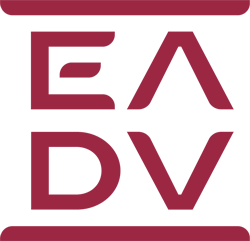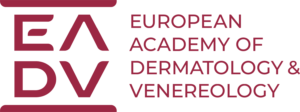Patient organisations area
The Patient Organisation Area is a collaborative space for patient organizations and dermatology and venereology specialists.
EADV invites all Congress participants to connect – onsite or virtually through the Congress platform – with delegates from various patient organizations, discuss shared interests, explore diverse perspectives, address needs and roles, and consider how these fit into the broader landscape of European dermatology.
Applications closed on 30 June 2025.
The daily schedule of Patient Organisations who applied for an onsite desk at the Patient Area will be published soon on this webpage.
Applications are open
Register your organisation on the patient online portal and apply for a desk in the dedicated area by 30 June 2025.
Can’t attend onsite? Join us virtually with a profile in the EADV Congress platform
Daily schedule
Wednesday 25 September
Thursday 26 September
Friday 27 September
Saturday 28 September
Available only on the Virtual Congress platform
Organisations at the 2024 EADV Congress
Courtesy of Bart Hess

